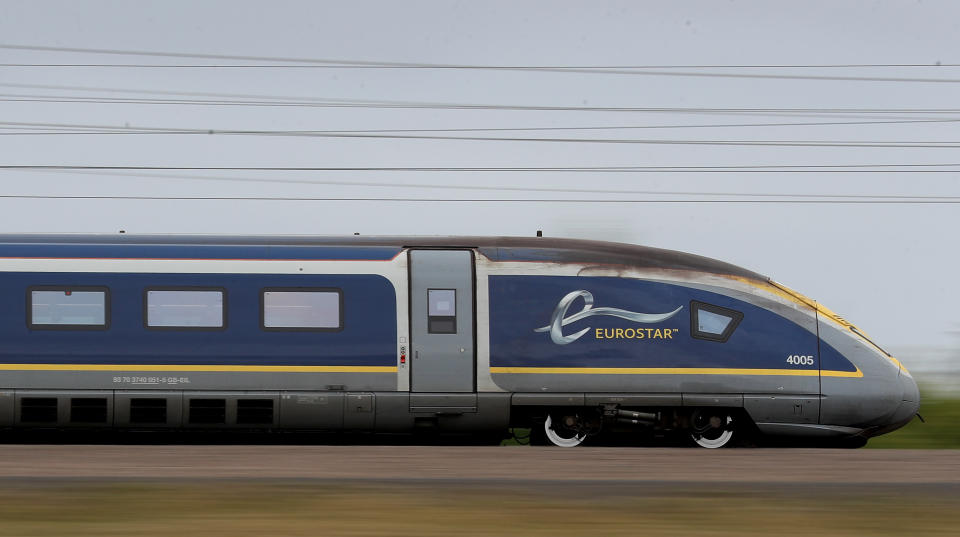Exclusive: UK had lowest take-up for EU’s rail pass giveaway to teens

Half of British teenagers who applied for the EU’s rail ticket giveaway have been successful because of low interest compared to the rest of the continent, Yahoo can reveal.
18-year-olds across the EU were invited last month to apply for one of 15,000 free travel passes on offer as part of a €700m scheme to foster European identity among young people.
The European commission has since announced that the ‘DiscoverEU’ scheme was six times oversubscribed, with more than 100,000 young people applying.
But Commission figures obtained by Yahoo reveal that the UK had the lowest number of applications for each pass on offer.
Each member state had a quota of tickets based on population – the UK’s was 1,929.
The figures show 3,786 UK citizens applied for the subsidised summer holiday – giving them a 50% chance of being successful.
Hahaha, applied for a free interrail pass, didn’t think I’d actually get it! Guess I’m going on holiday then #discovereu pic.twitter.com/uE6OGUeNzn
— Emily (@wyman_emily) June 28, 2018
Youngsters in every other EU country found themselves with a lot more competition for each pass.
A European commission spokesperson insisted: “The European Commission promoted DiscoverEU equally in all EU Member States.”
France had the second lowest number of applications per ticket. There were 5,023 applications for 1,964 passes – a 39% chance of success.
The highest number of applications came from Germany, where there were 19,682 applications for just 2,427 places – a 12% chance of success.
The application figures for other countries with a population close to that of the UK were:
Spain: 11,680 applications for 1364 places – 11% chance of success
Italy: 8,769 applications for 1776 places – 20% chance of success
Poland: 6,465 applications for 1114 places – 17% chance of success
Ireland, where there were 2,524 applications for just 140 places, was among the countries where applicants were least likely to be successful.
Just 5% of teenagers who applied in Ireland, the Netherlands, Lithuania and Slovenia got the tickets.
Those lucky few – and the lucky half in the UK – will soon be setting off on their travels.
Emily Wyman from Sheffield, who applied after her mum saw a newspaper article about the scheme, told Yahoo: “It was bit of a joke to be honest, I really didn’t think I was going to get it.”
Wyman is heading-off on Monday with another applicant who got in touch with her on social media to suggest they team up and travel together.
Fittingly, their first stop on their rail adventure is Brussels. Is the scheme making her feel more European like the commission hoped?
“Not currently,” says Wyman. “However I feel like maybe once I’ve been and I’ve gone round a little bit I feel like, yeah, it probably will make me feel a little bit more European.”
British teenagers will have one more chance to apply before Brexit when the European commission opens applications for another 10,000 passes in the autumn.
For the rest of Europe, the EU has set aside £642m in its next budget to pay for the project to continue between 2021 and 2027.
MORE: EU sends message to UK and Trump with biggest ever trade deal

 Yahoo Finance
Yahoo Finance 